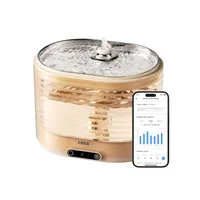What can dogs drink besides water? Vet shares 6 safe alternatives
What should dogs drink? We spoke to a vet to find out what beverages are safe and which to steer clear of
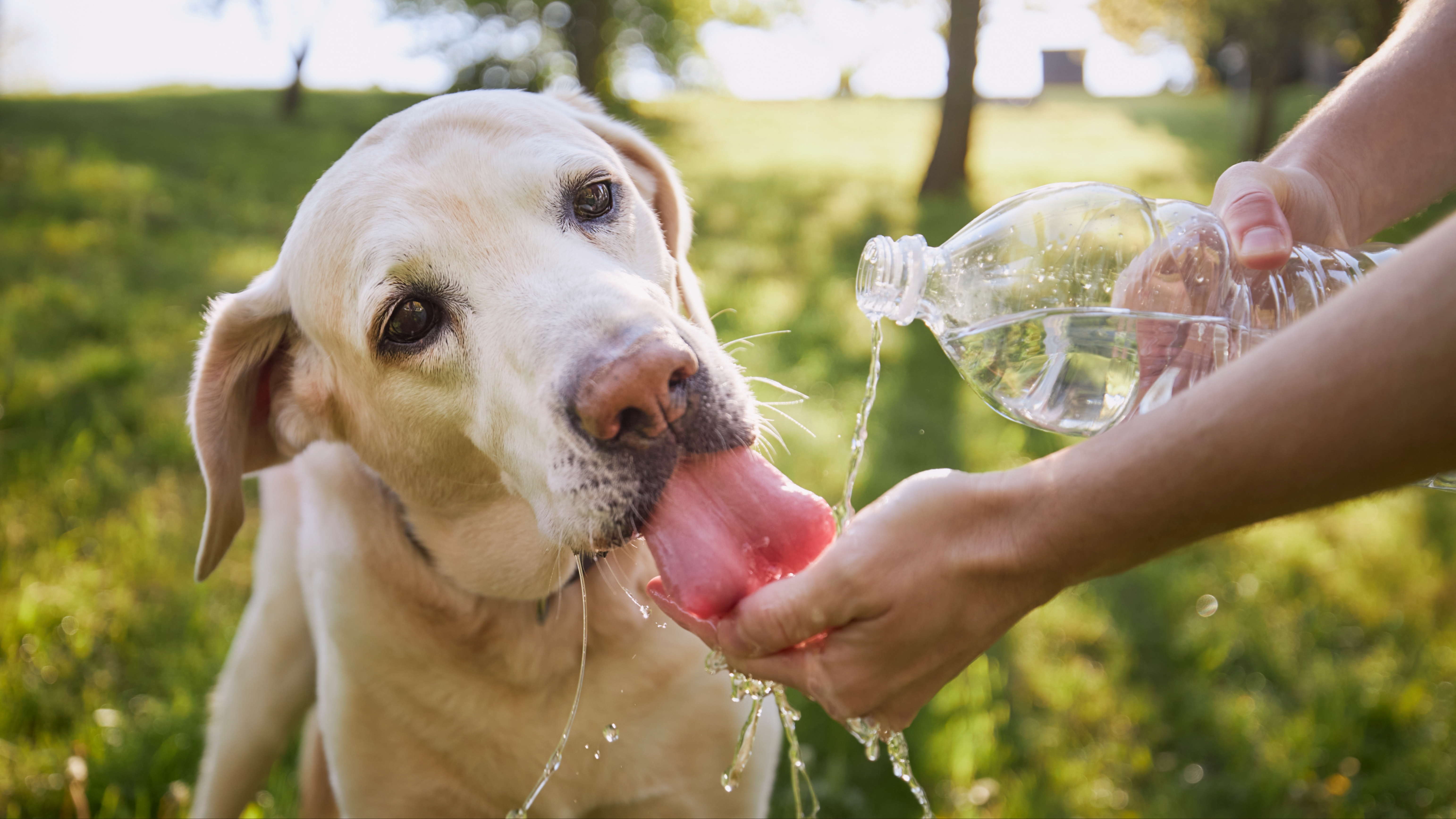
Get the best advice, tips and top tech for your beloved Pets
You are now subscribed
Your newsletter sign-up was successful
What should dogs drink? It's a question you may well be asking if you have a beloved canine companion in your life and are worried that the same old water in their bowl every day may start to feel a little boring!
Well, the good news is that fresh, clean water served in a dish or free-flowing from one of the best pet water fountains will always be the number one choice of hydration where your dog's concerned.
However, that doesn't mean you can't give your pup delicious liquid treats from time to time. In fact, things like bone broth, certain herbal teas and nutritious coconut water can all be enjoyed in moderation.
To help you in your quest for non-water options to quench your dog's thirst, we turned to expert vet Dr Rebecca MacMillan. Below, she outlines all the drinks that are safe for your pup, which ones to steer clear of and reveals whether dogs ever get bored of drinking water. Let's dive in...
What should dogs drink?
Just like us, it's important that our dogs stay well hydrated. Here are the beverages that are safe for your canine companion to consume:
1. Fresh, clean water
According to Dr MacMillan, nothing beats water when it comes to keeping your dog's body running smoothly.
Get the best advice, tips and top tech for your beloved Pets
"The best thing for dogs to drink is fresh, clean water, which should always be available to them, even when offering other fluids," she says.
2. Bone broth
Homemade bone broth is a liquid that's made by boiling the bones and connective tissues of animals in water. And the good news is, it's safe for your dog to drink.
"Bone broth is a safe occasional treat that is rich in health-boosting nutrients like protein and collagen," Dr MacMillan explains.
3. Herbal teas, such as peppermint
Who knew that our dogs could enjoy herbal tea just as much as we do?
"Dogs can have moderate amounts of many caffeine-free herbal teas such as chamomile, ginger, and peppermint, if you cool the drink down before offering it," says Dr. MacMillan.
Just be sure to check that the herbal tea you're wanting to give your dog is safe for them to drink as some herbs and spices aren't suitable for dogs.
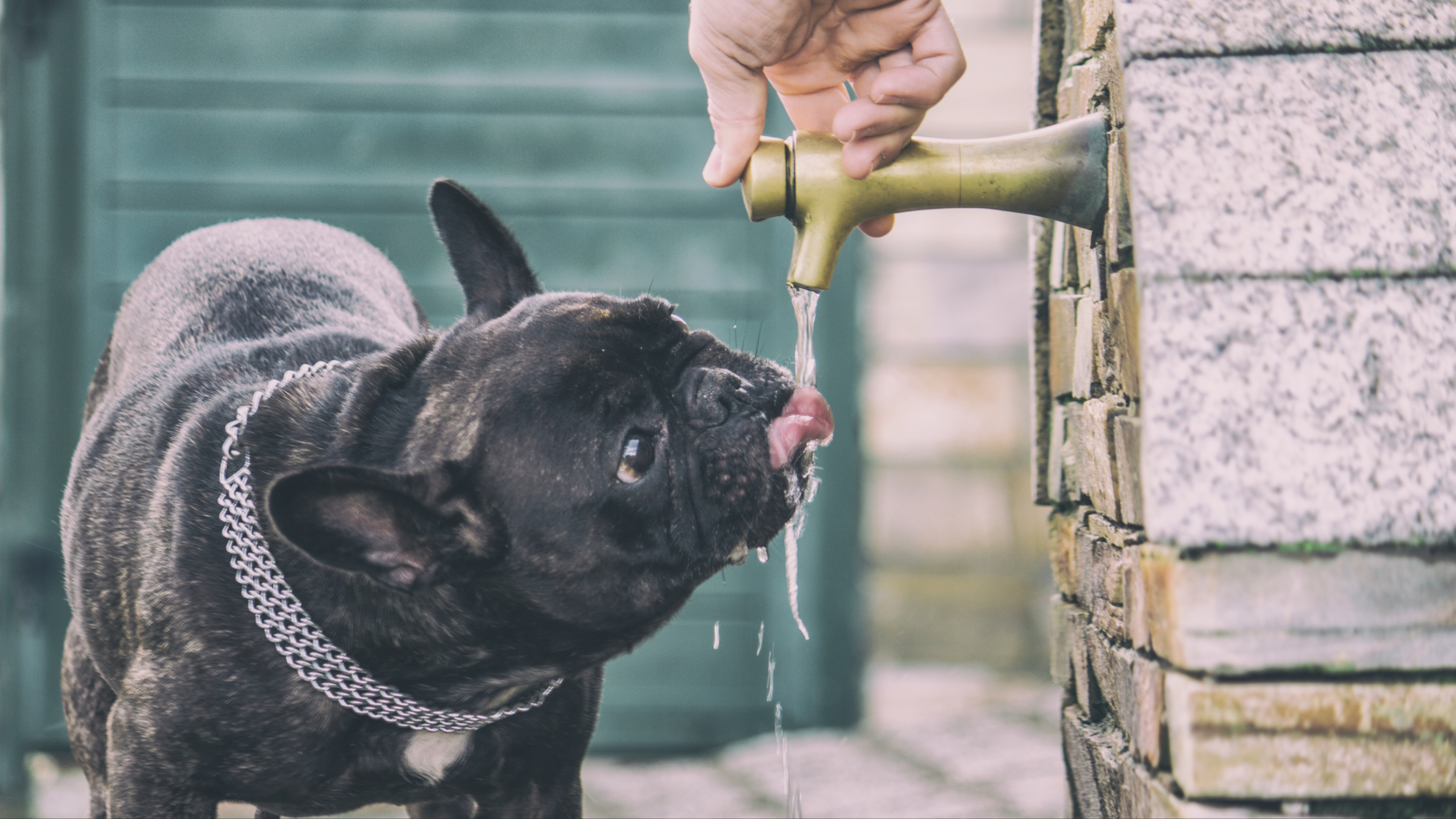
4. Ice cubes and popsicles
Can dogs eat ice cubes and popsicles? Dr MacMillan says they can make a fantastic treat in hot weather.
"Icy snacks can be a great way of keeping dogs cool, as well as mentally stimulated, during the summer months."
5. Homemade fruit or vegetable juice
When it comes to homemade fruit and vegetable juices, Dr MacMillan says these are safe to consume in small amounts – with one exception.
"Steer clear of grape juice, which is toxic."
6. Puppy milk
"Puppies that are being hand-reared will need to drink puppy milk, which is specially formulated to support their growth and digestion," explains Dr MacMillan.
While adult dogs can also consume puppy milk as an occasional treat in small amounts, it's high in fat and therefore should not be given to dogs with a history of pancreatitis. Be sure to check with your vet that puppy milk is safe for your adult dog before giving it to them.
7. Coconut water
Can dogs drink coconut water? They sure can!
"This sweet, nutty water contains electrolytes like potassium, magnesium, and calcium, and can be enjoyed by dogs in moderation," Dr MacMillan advises.
What dogs shouldn't drink
Now that you know what drinks are safe for your canine companion to consume, here's a list of beverages that aren't suitable for dogs.
1. Milk (both dairy and non-dairy)
"Cow’s milk can cause digestive upset in lactose-intolerant dogs, plus both dairy and nut/soy milks will add additional calories to your pet’s diet, leading to weight gain," Dr MacMillan explains.
2. Alcohol
When it comes to drinks and foods that dogs should never eat, alcohol is right up there on the list.
"Dogs are more susceptible to the effects of alcohol than we are and could suffer from ethanol toxicity," says Dr MacMillan.
3. Caffeinated beverages
"Caffeine is dangerous for dogs, who are much more sensitive to its effects than we are," Dr MacMillan explains.
For that reason, you'll want to make sure your pup doesn't try to join you for your morning Cup of Joe!
4. Sugary or flavored drinks
"These beverages offer no nutritional value, with high sugar levels contributing to weight gain, and the xylitol found in some sugar-free alternatives being toxic to dogs," says Dr MacMillan.
5. Toilet water
According to Dr MacMillan, not only is toilet water unhygienic "but it could also contain chemical cleaning products that could be harmful to your dog’s health."
Enabot ROLA Smart Pet Water Fountain | Amazon
Keep your dog's water clean and your house uncluttered with this cordless pet water fountain which features an impressive 60-day battery life. Great value and easy to use, it connects to your smart phone so you can track your dog's water intake.
What should puppies drink?
Bringing home a puppy for the first time can be so exciting, but it can be confusing, too. What should your new fur friend be drinking? And for how long? Dr MacMillan breaks this down for us below:
0–4 weeks old: Puppies at this age will be getting all their fluid intake from their mother’s milk, or from an appropriate puppy milk replacer if they are being hand reared.
4–8 weeks old: Puppies at four to eight weeks of age will start to lap at water and eat solid foods, gradually decreasing the intake of milk from their mother.
8+ weeks: Puppies are fully weaned at this age and will now only require water to drink.
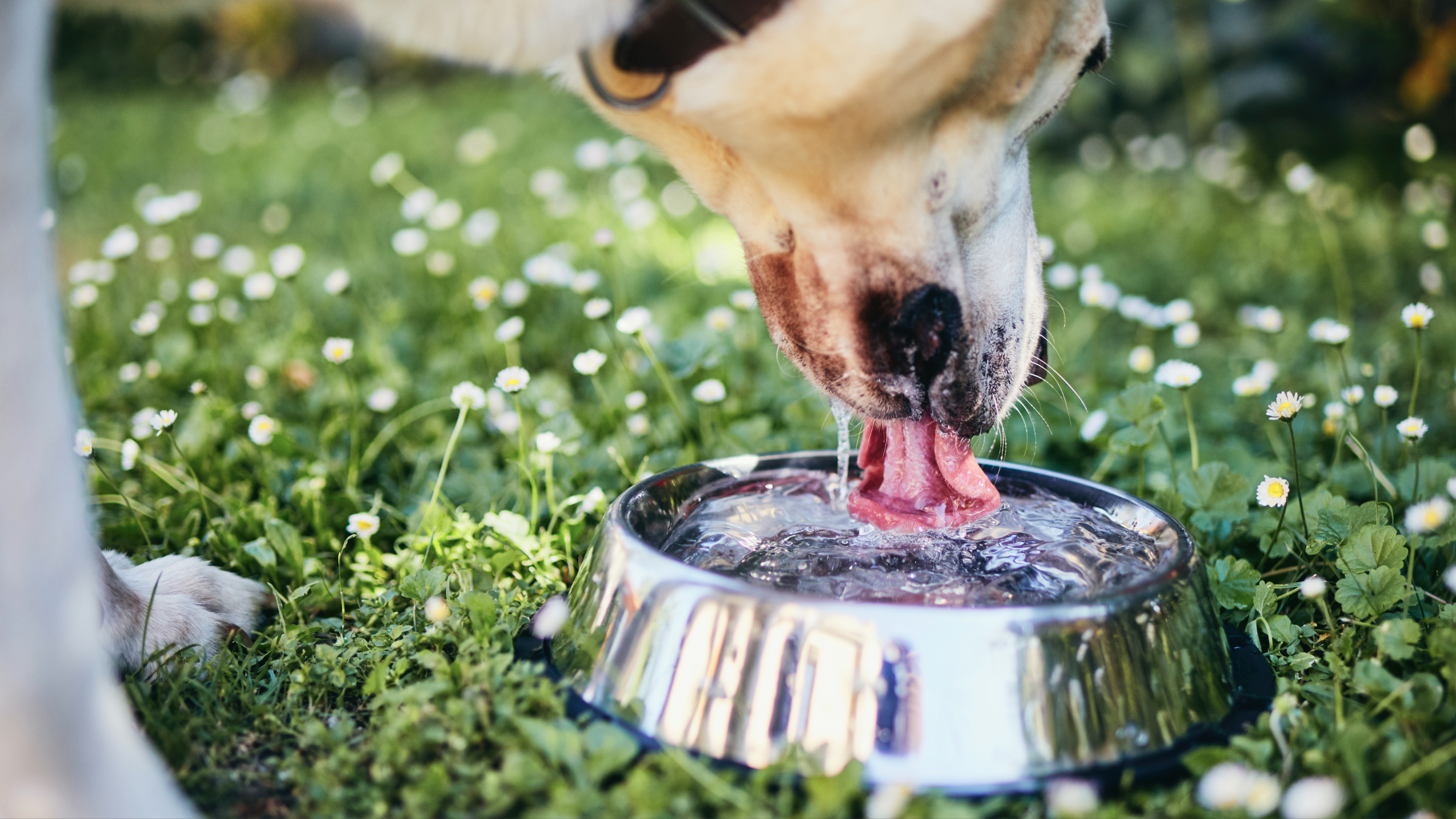
What is the best thing to hydrate a dog?
While it can be tempting to offer your dog other liquids to add variety into their diet, Dr MacMillan says the best thing to give a thirsty dog will always be fresh, clean water.
"Other liquids could be off-putting and reduce their willingness to drink, especially if your dog has never been offered them before," she explains. "If your dog is unwell or severely dehydrated, then oral fluids are often not enough. These dogs will require rehydration with intravenous fluids administered in a veterinary hospital."
Dehydration in dogs can be serious or even fatal, so if you've noticed your pup isn't drinking or they're not drinking as much as they used to, be sure to seek advice from your vet.
Do dogs get bored of water?
Imagine if you had to eat and drink the same thing every day. You'd likely be bored out of your mind, right? It's easy to transfer that feeling onto your dog and to think that they probably feel the same way, but the good news is that Dr MacMillan says she doesn't believe dogs get bored with water.
"I have never known a dog to let themselves get thirsty or dehydrated because they find water dull," she explains. "Dogs may enjoy the taste of other drinks, but this doesn’t mean they think water is boring. I recommend that all dog owners stick to water as much as possible, as this is the healthiest and safest option for them."
Check out our guide to how much water should a dog drink to make sure your canine companion is getting enough of the wet stuff each day
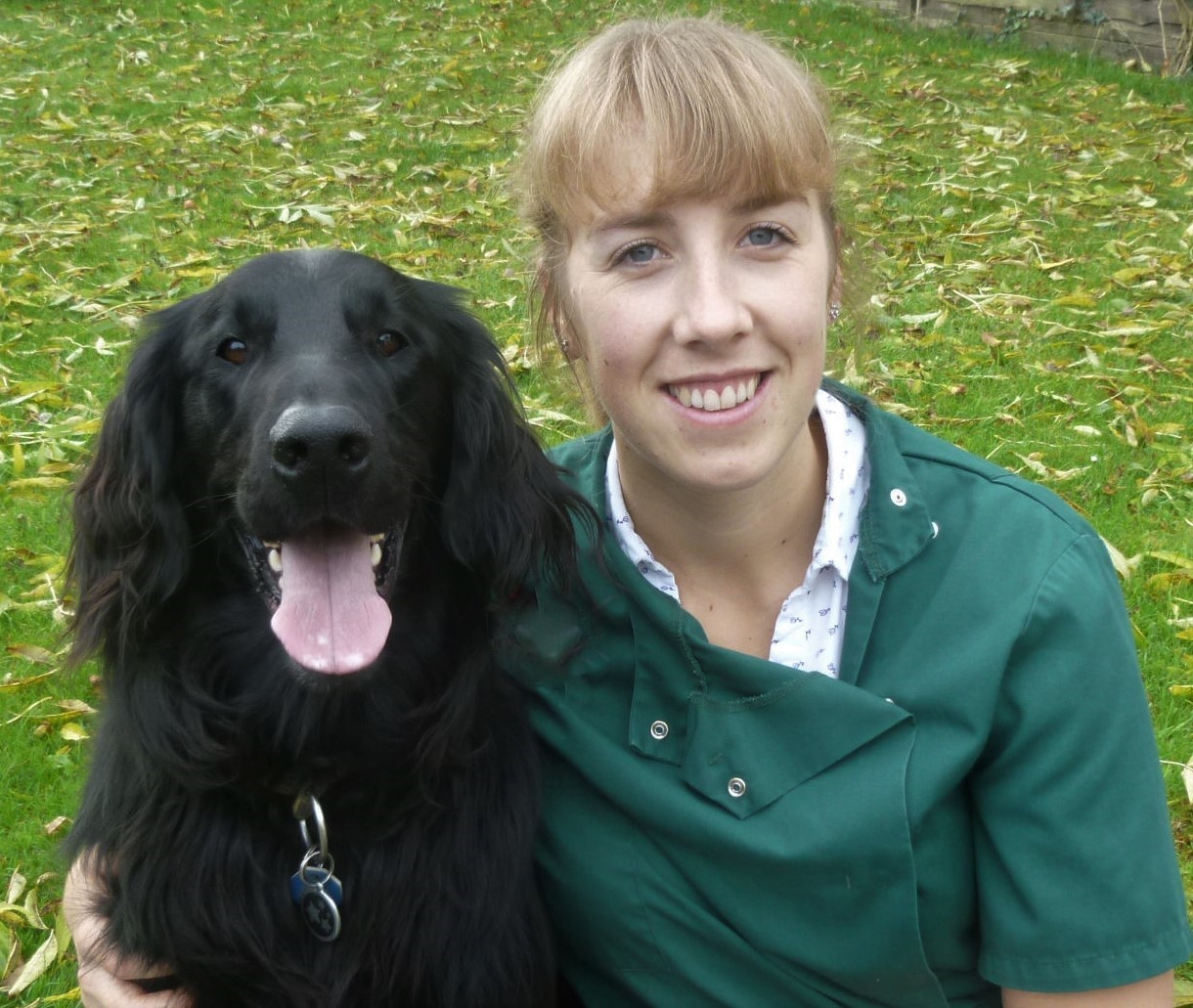
Rebecca is a veterinary surgeon who graduated in 2009 from the Royal Veterinary College in London. She has a wealth of experience in first opinion small animal practice, having done a mixture of day-to-day routine work, on-call emergency duties and managerial roles over the years. Rebecca enjoys medicine in particular and she is proud to have recently achieved a BSAVA postgraduate certificate in small animal medicine (with commendation).
She writes on various feline and canine topics, including behavior, nutrition, and health. Outside of work and writing she enjoys walking her own dog, spending time with her young family and baking!
Edited by Megan Milstead.
This page was last updated in May 2025 by Kathryn Williams.

Kathryn is a freelance writer who has been a member of the PetsRadar family since it launched in 2020. Highly experienced in her field, she's driven by a desire to provide pet parents with accurate, timely, and informative content that enables them to provide their fur friends with everything they need to thrive.
Kathryn works closely with vets and trainers to ensure all articles offer the most up-to-date information across a range of pet-related fields, from insights into health and behavior issues to tips on products and training.
When she’s not busy crafting the perfect sentence for her features, buying guides and news pieces, she can be found hanging out with her family (which includes one super sassy cat and a kitten), drinking copious amounts of Jasmine tea and reading all the books.
She has written for a range of publications, including Fit&Well, Top Ten Reviews, LiveScience, Goodto, and Product Hunt.
